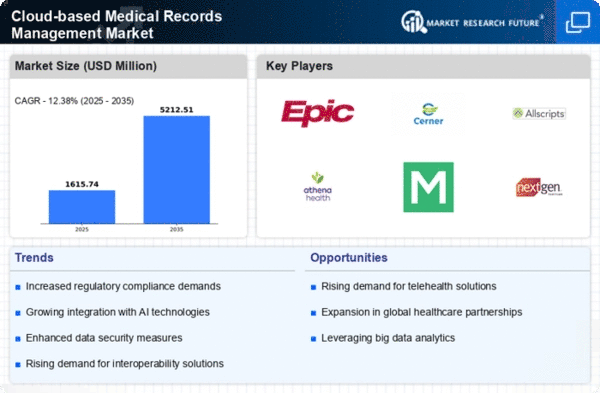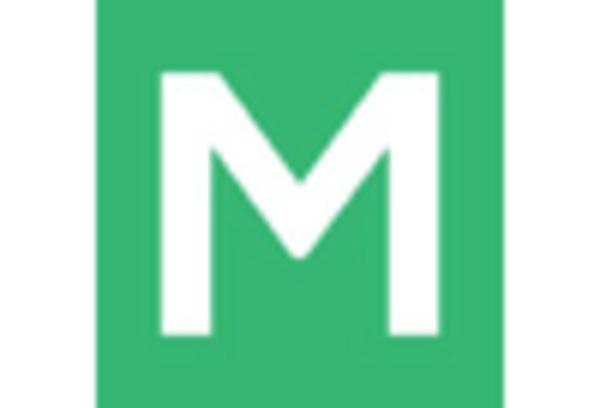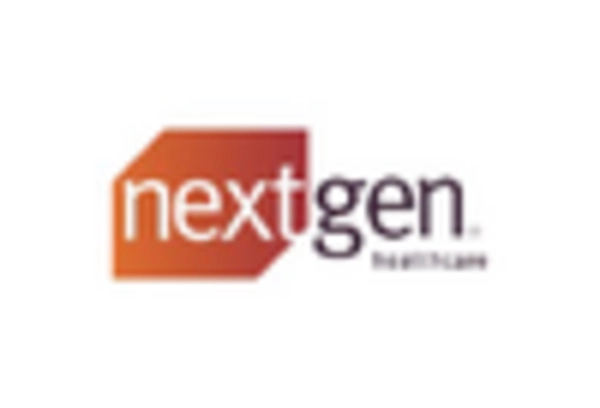Market Share
Cloud based Medical Records Management Market Share Analysis
The Cloud-Based Medical Records Management market is witnessing rapid growth as healthcare providers transition from traditional paper-based systems to digital solutions. Effectively positioning in this market involves strategic planning to capitalize on the increasing demand for efficient and secure medical data management. Companies seeking to carve a big niche in the market should consider the data security and healthcare regulation compliance first. The use of strong encryption protocols, compliance with HIPAA regulations, and certifications foster trust between healthcare institutions and patients. Seamless integration with current healthcare systems and interoperability with various platforms are prerequisites of successful penetration into the market. Solutions for companies should be developed that easily integrate with Electronic Health Records (EHRs), diagnostic tools, and other medical software to improve overall workflow effectiveness. Providing scalable solutions that address the various requirements of healthcare facilities, whether small clinics or large hospital networks, is critical. Scalability makes it possible for the healthcare providers to customize the cloud-based medical records management system to meet their specific needs, enabling the system to be universally adopted. Creating user friendly interfaces and offering extensive training programs are among factors of successful market positioning. Intuitive systems decrease the learning curve for healthcare professionals, thus leading to faster adoption and better utilization of cloud-based medical records. In this dynamic market, keeping abreast of technological innovations is essential. To enable their solutions to operate more efficiently and safely, companies should spend on research and development to introduce the emerging technologies that include artificial intelligence, machine learning, and blockchain. Offering pocket-friendly solutions and adjustable subscription models is a strategic effort in attracting health providers with different budgets. This creates affordability for small practices while allowing larger organizations to have a scaled use of the software. Creating strategic alliances with healthcare providers can have a major market share effect. Partnerships with hospitals, clinics, and medical organizations ensure that direct feedback reflects on real-world needs, customization and wider network for products adoption. The reliability of cloud-based medical records systems must be guaranteed especially in the light of unexpected events. Deployment of fail-proof disaster recovery and backup systems provides health organizations a guarantee that their data is safe and usable in case of system failures or natural calamities. By providing customization features and bespoke solutions the system can be adjusted to the healthcare providers’ workflow. The companies that can cater for the variety of needs and preferences are the most likely to be accepted by the market. The companies should give preference to characteristics that will improve patients’ involvement and access to their own health records. In addition to user-friendly patient portals, mobile applications, and secure communication channels, a positive patient experience itself can affect in healthcare providers’ adoption of the system.
Incorporating robust data analytics capabilities into cloud-based medical records systems can differentiate a company in the market. Providing tools for healthcare professionals to analyze patient data can lead to improved clinical decision-making and patient outcomes, driving market preference.


















Leave a Comment